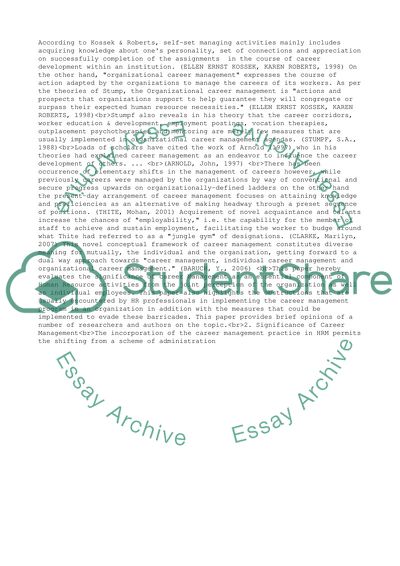Cite this document
(Organizational Career Management and Development Essay Example | Topics and Well Written Essays - 3750 words, n.d.)
Organizational Career Management and Development Essay Example | Topics and Well Written Essays - 3750 words. https://studentshare.org/business/1507085-organizational-career-management-and-development
Organizational Career Management and Development Essay Example | Topics and Well Written Essays - 3750 words. https://studentshare.org/business/1507085-organizational-career-management-and-development
(Organizational Career Management and Development Essay Example | Topics and Well Written Essays - 3750 Words)
Organizational Career Management and Development Essay Example | Topics and Well Written Essays - 3750 Words. https://studentshare.org/business/1507085-organizational-career-management-and-development.
Organizational Career Management and Development Essay Example | Topics and Well Written Essays - 3750 Words. https://studentshare.org/business/1507085-organizational-career-management-and-development.
“Organizational Career Management and Development Essay Example | Topics and Well Written Essays - 3750 Words”. https://studentshare.org/business/1507085-organizational-career-management-and-development.


